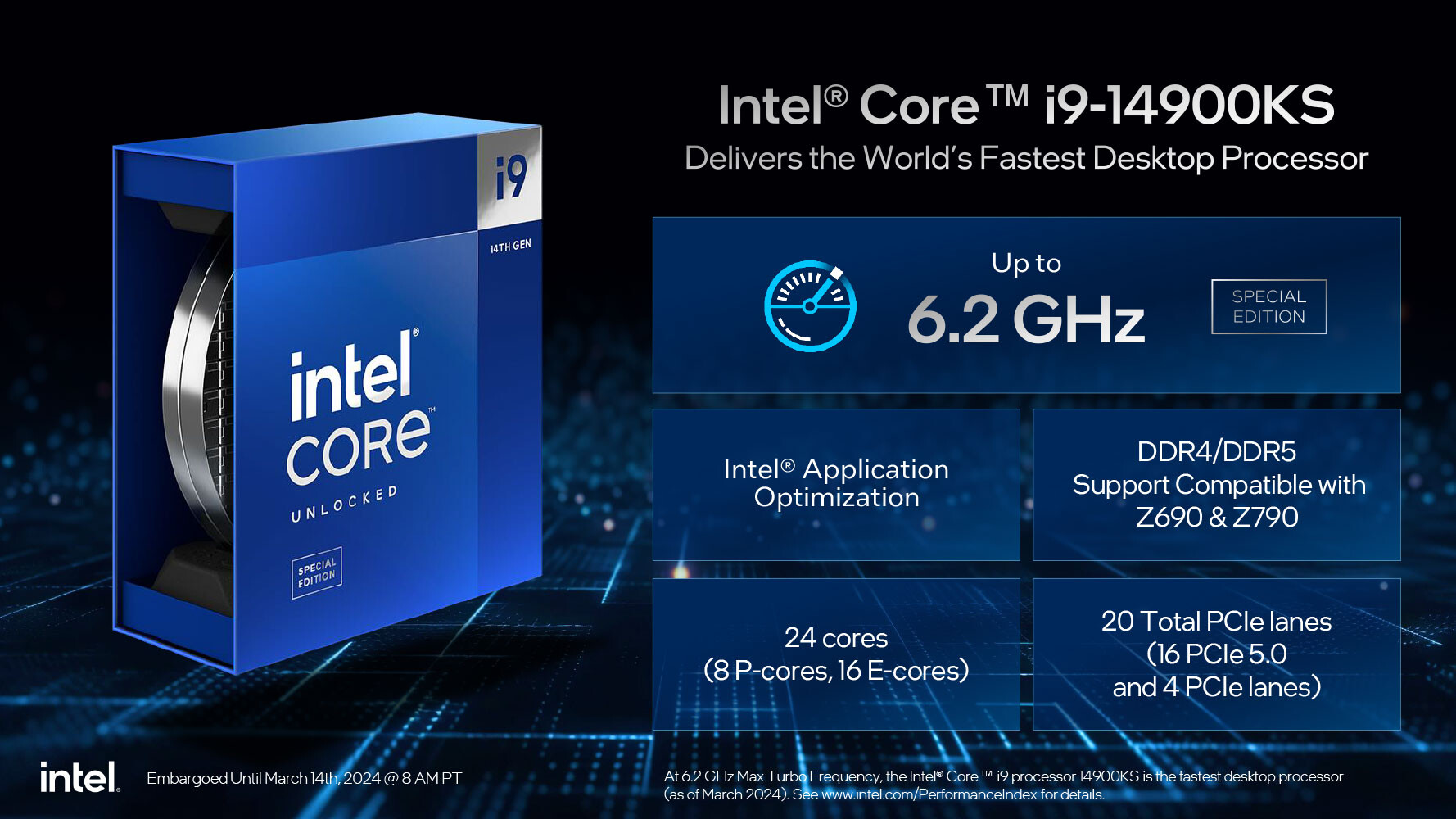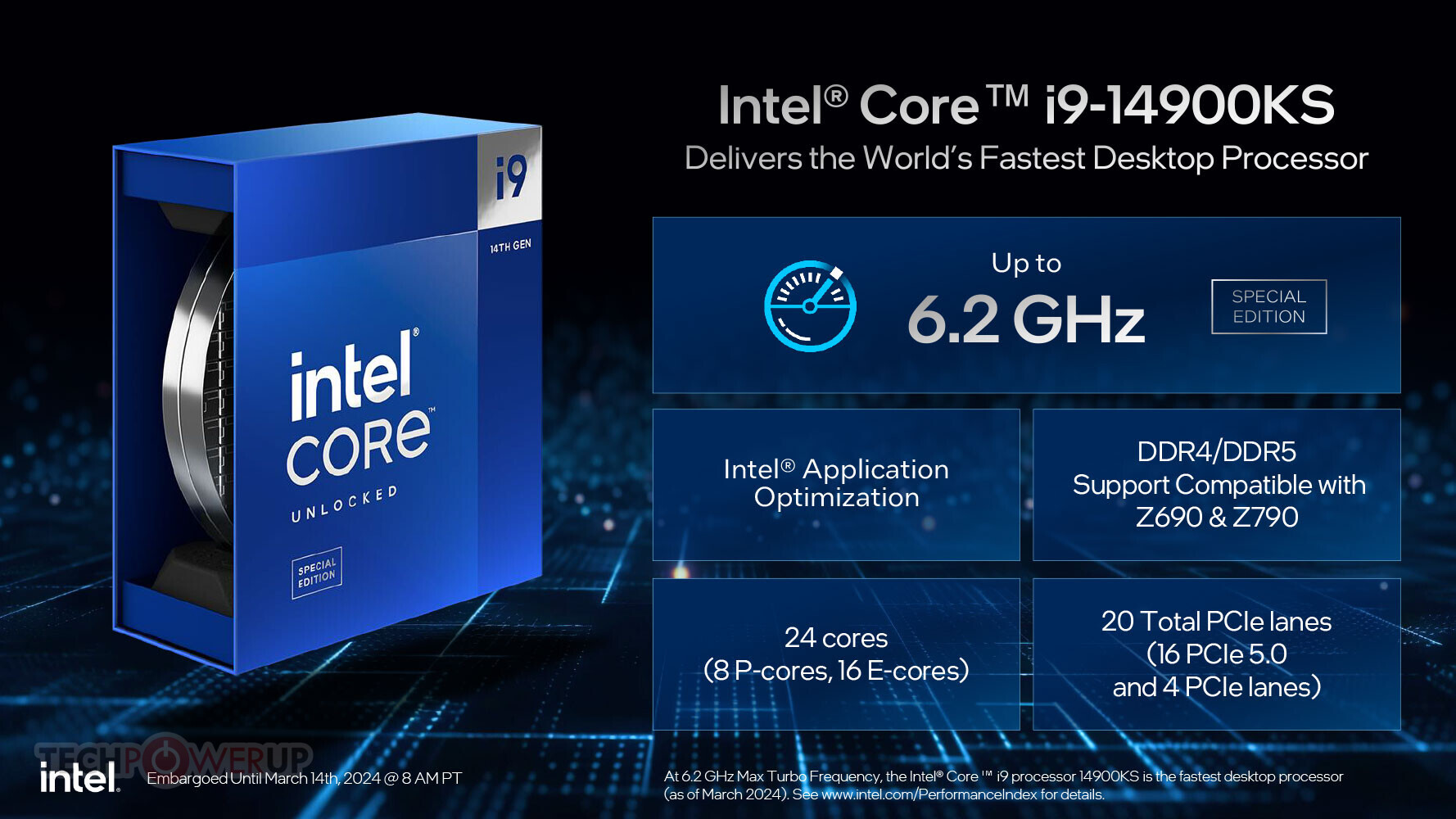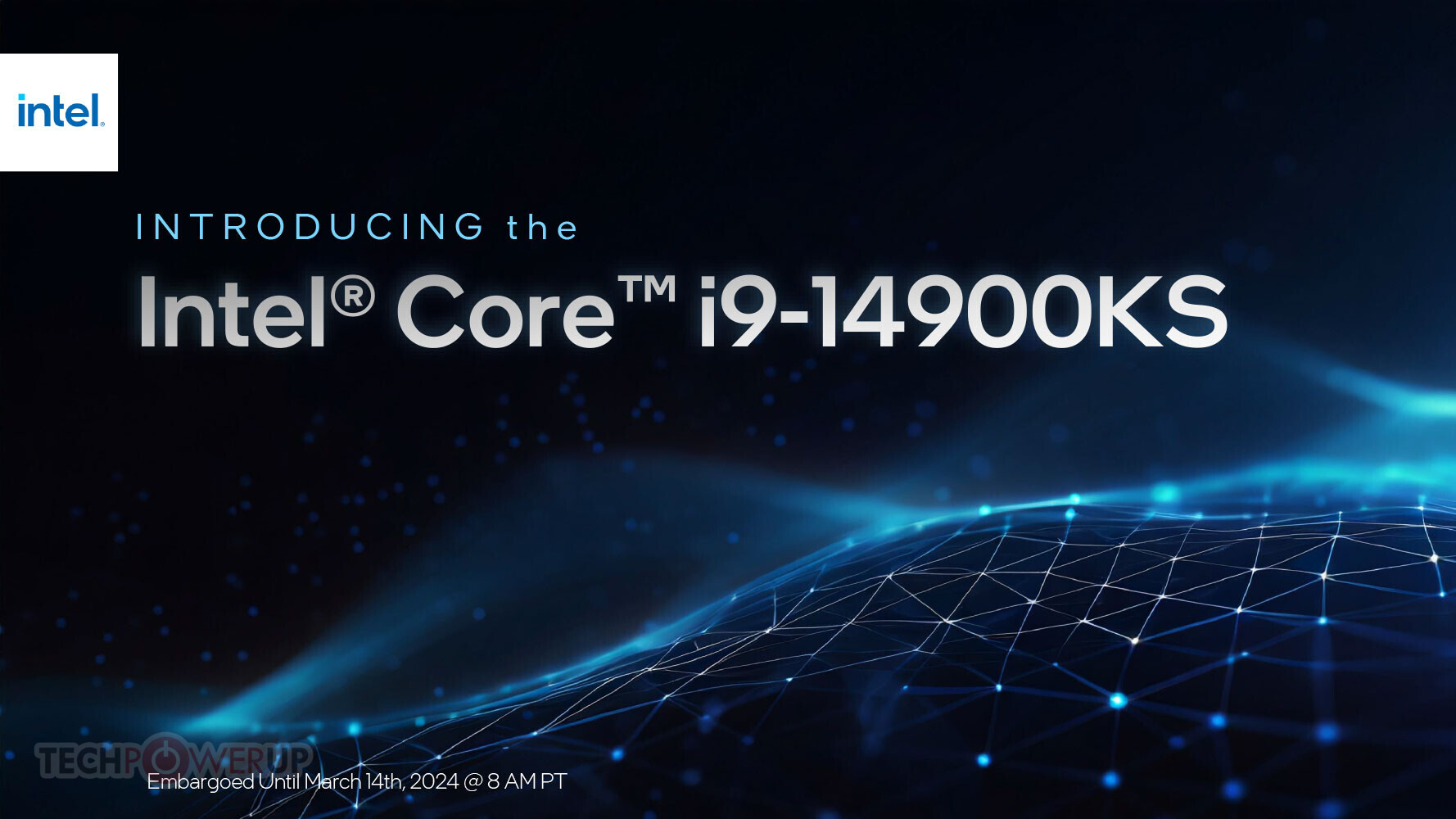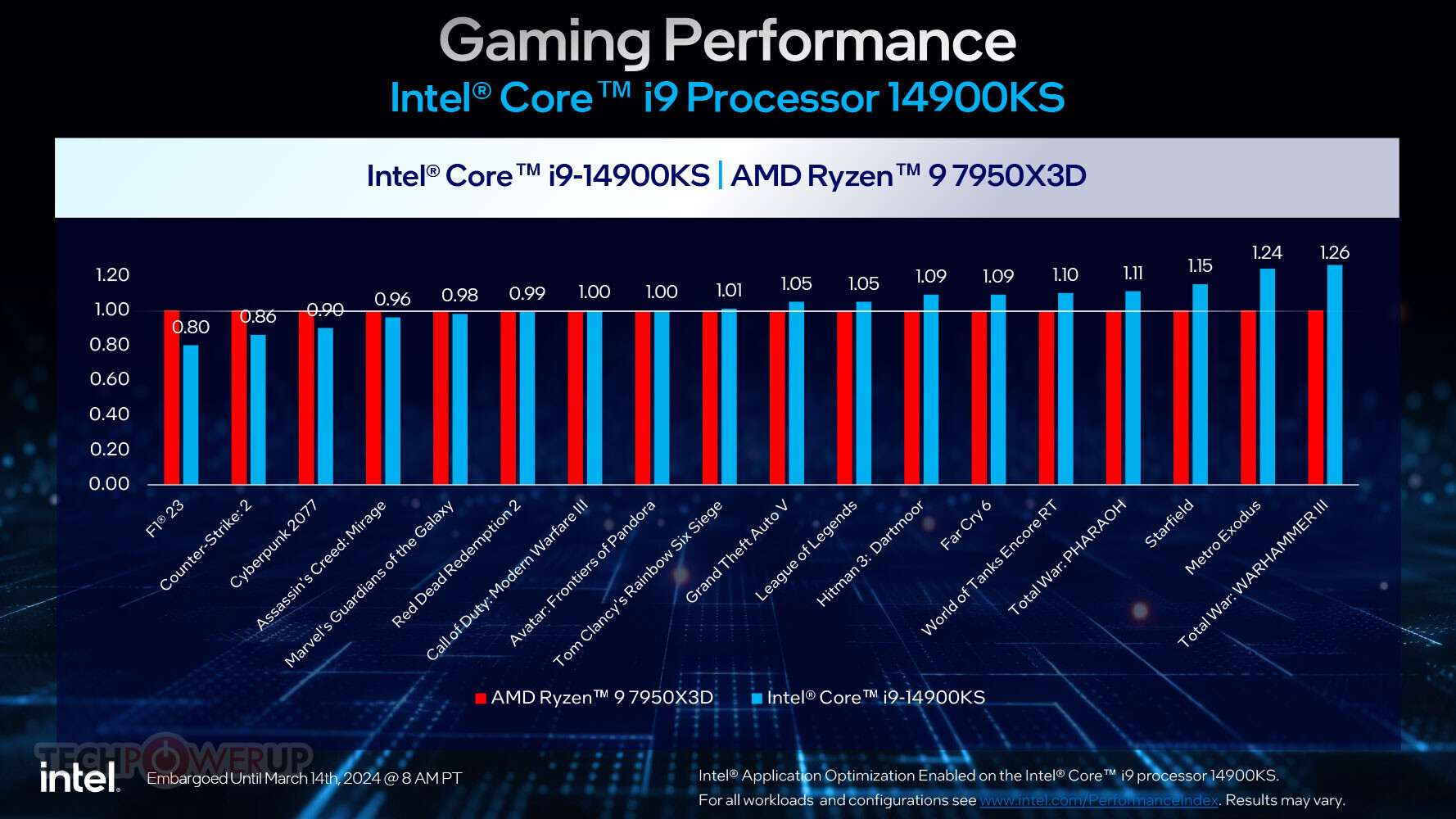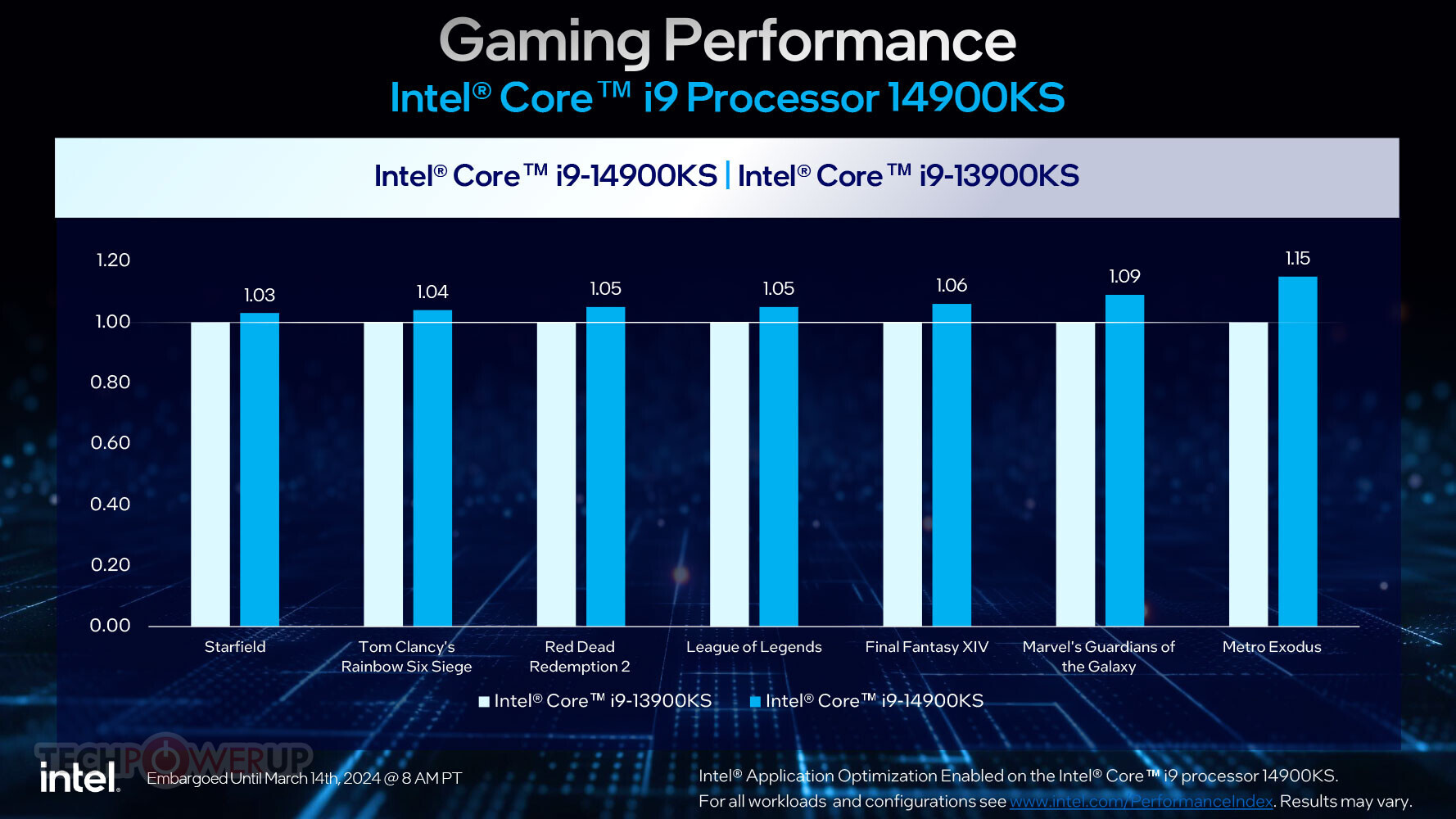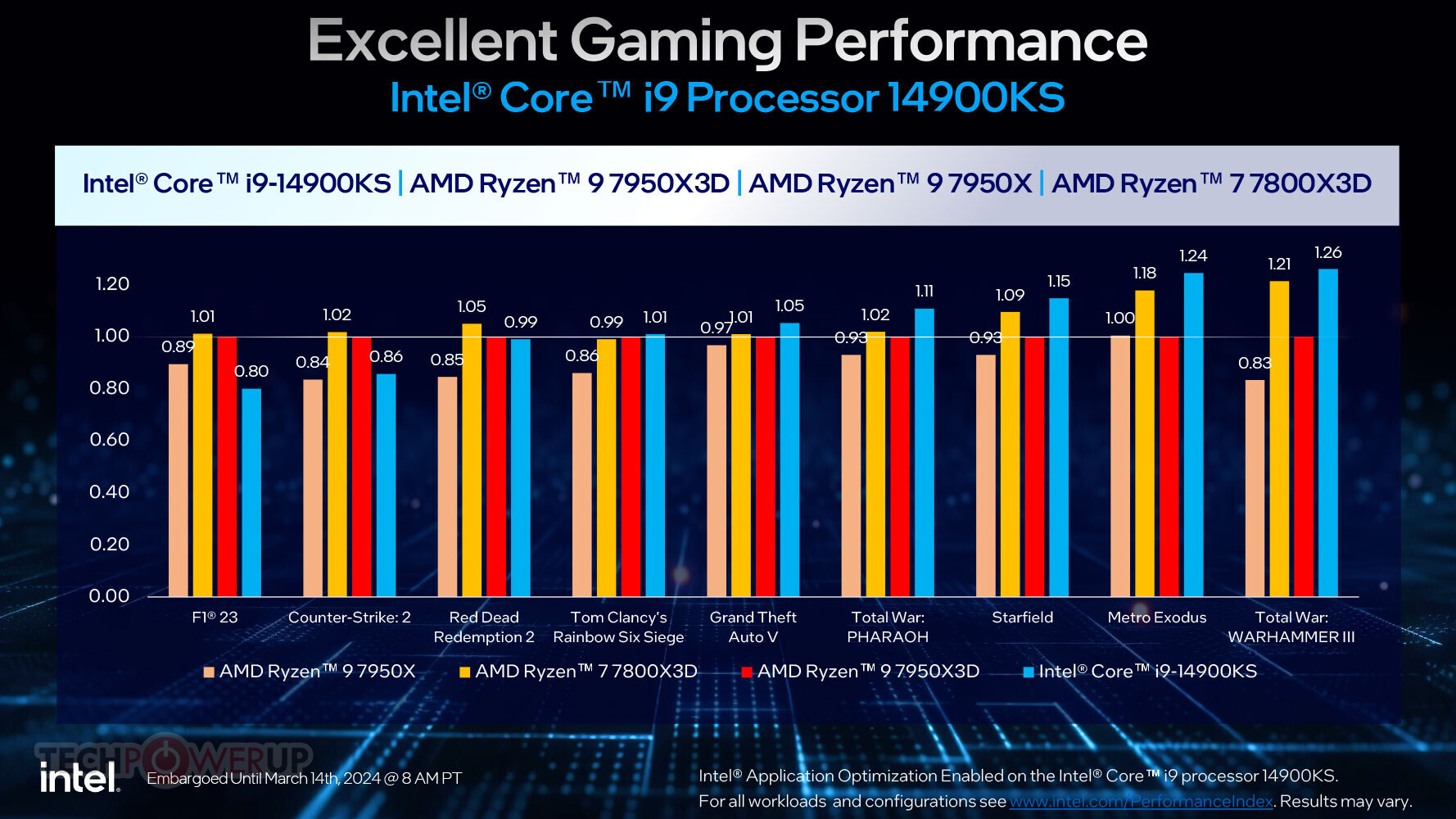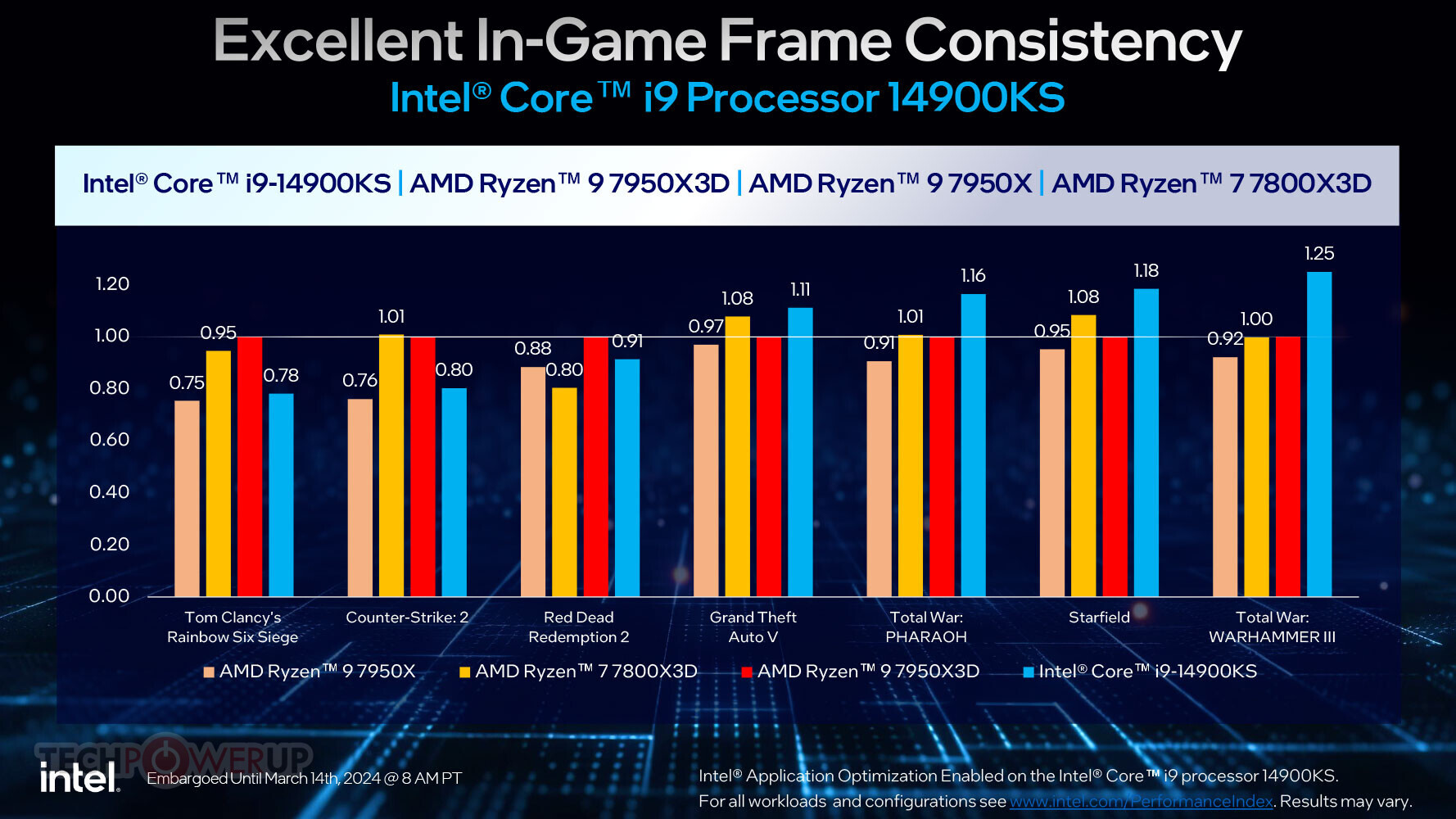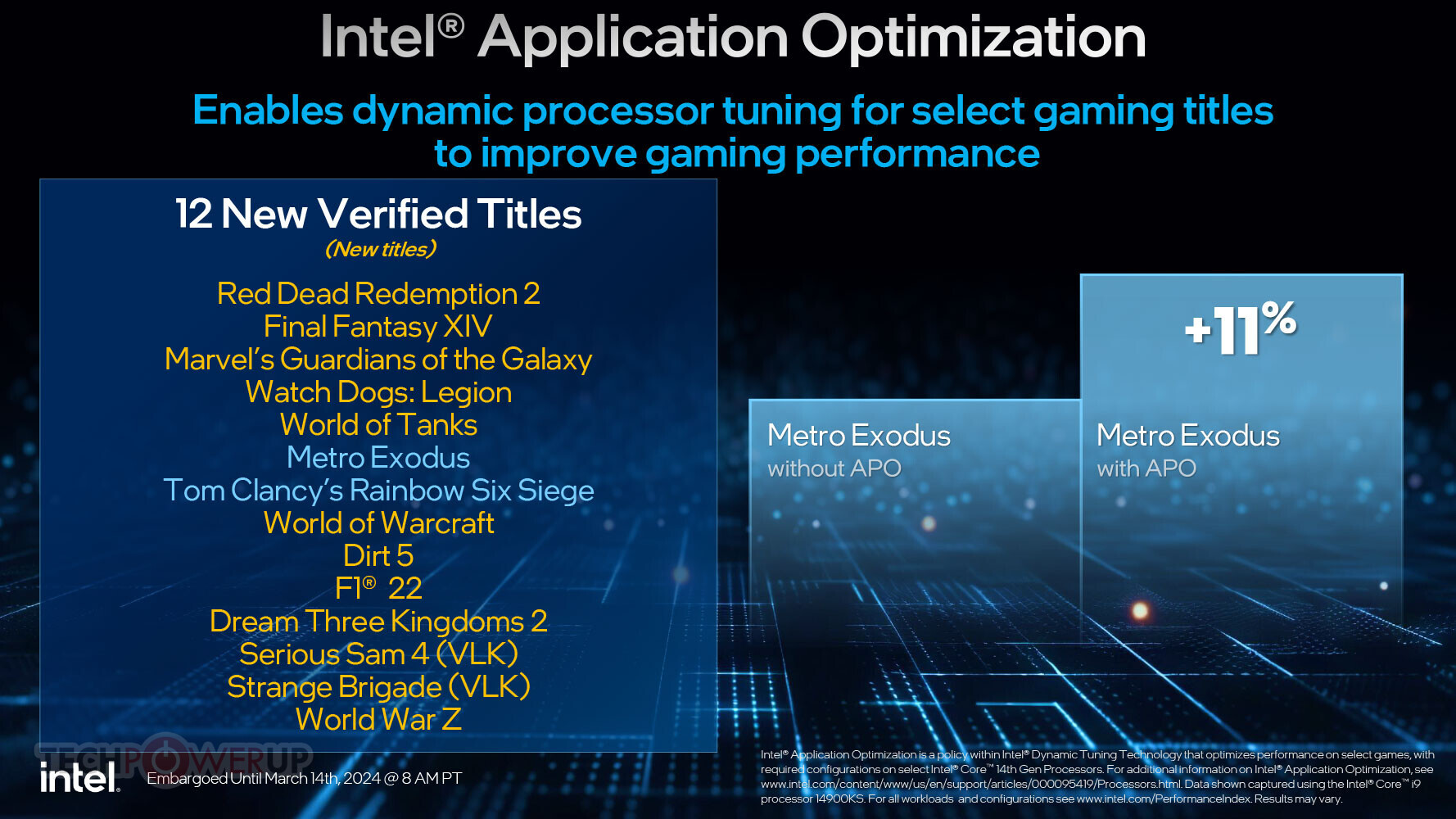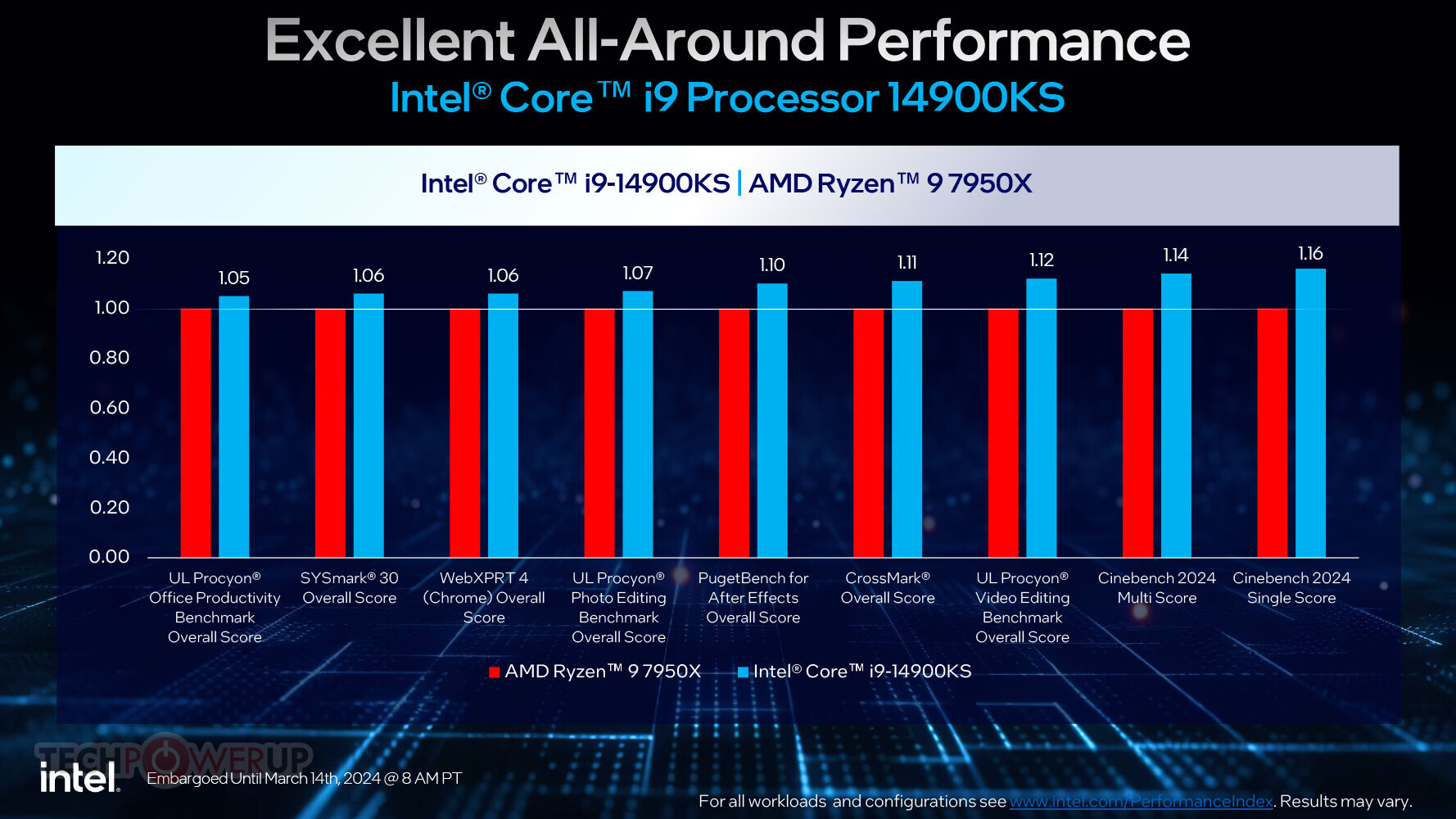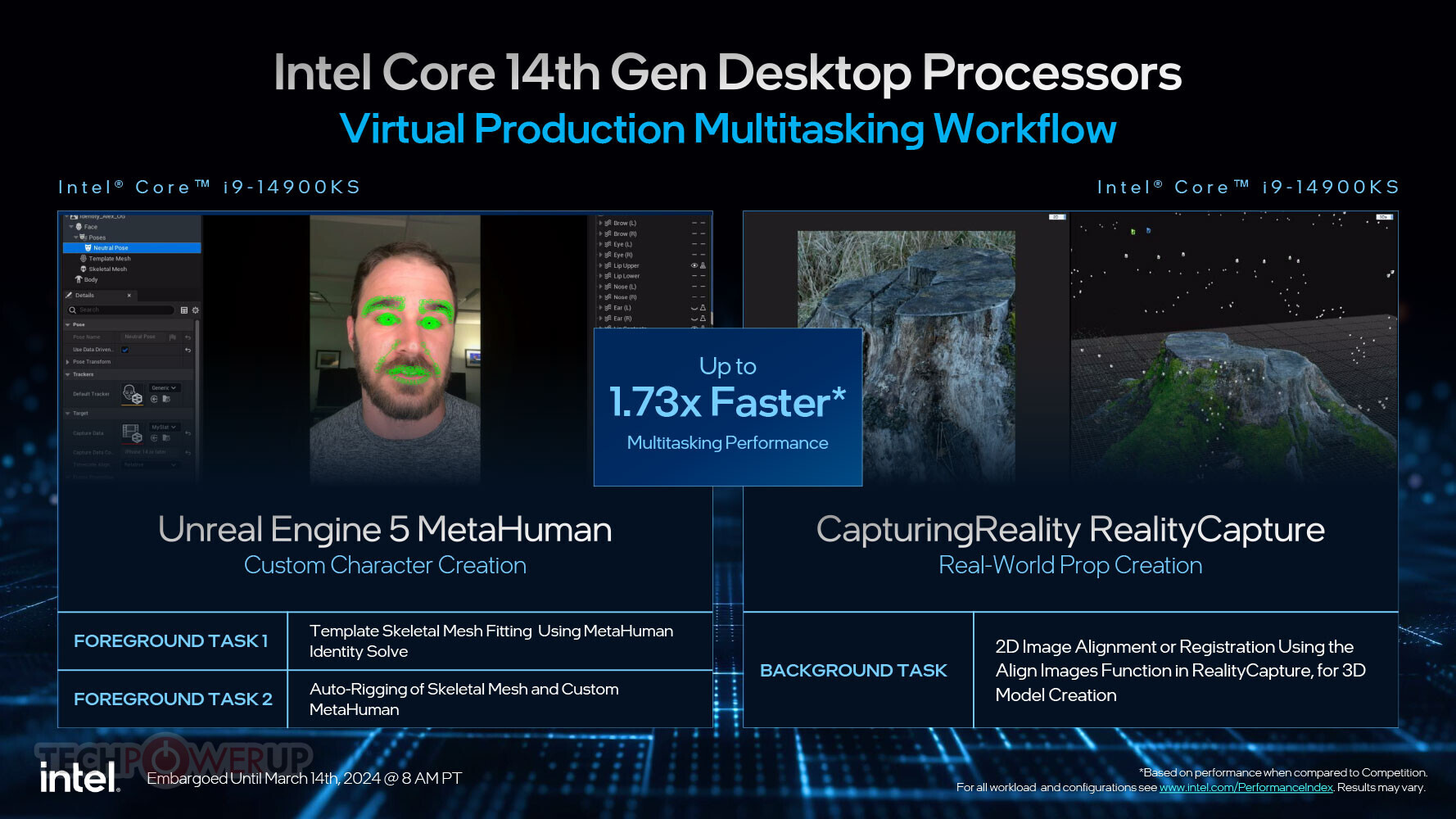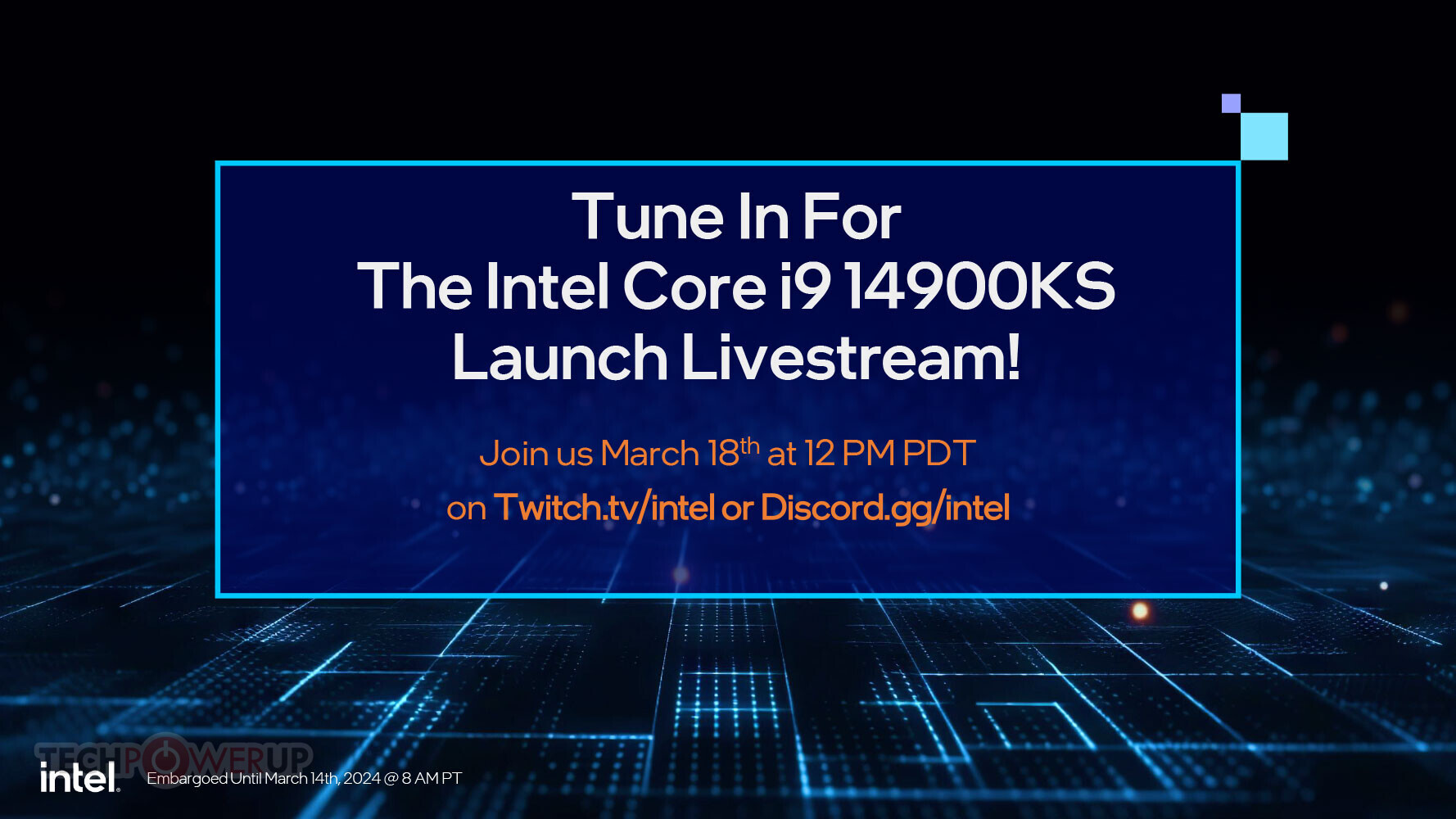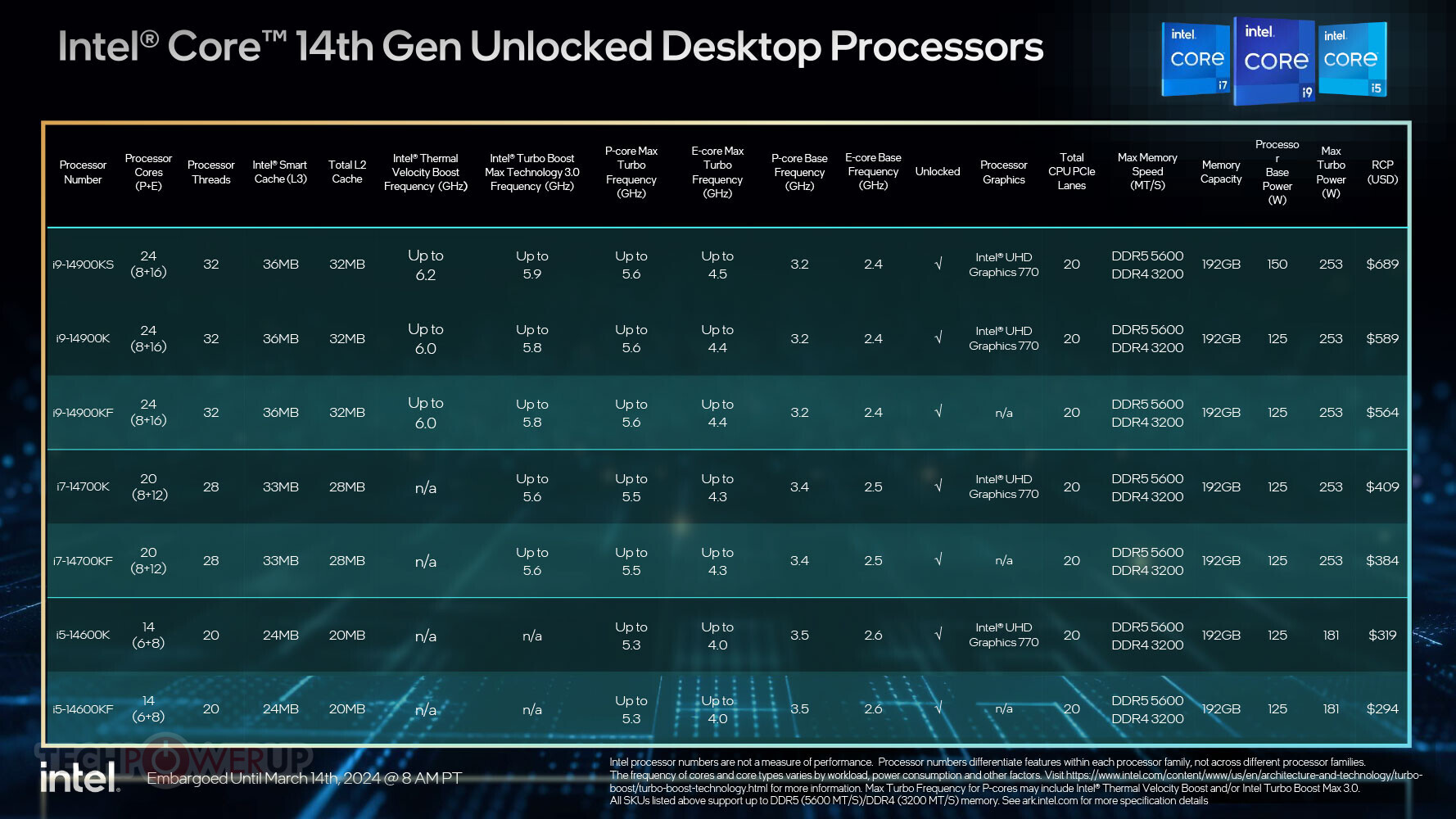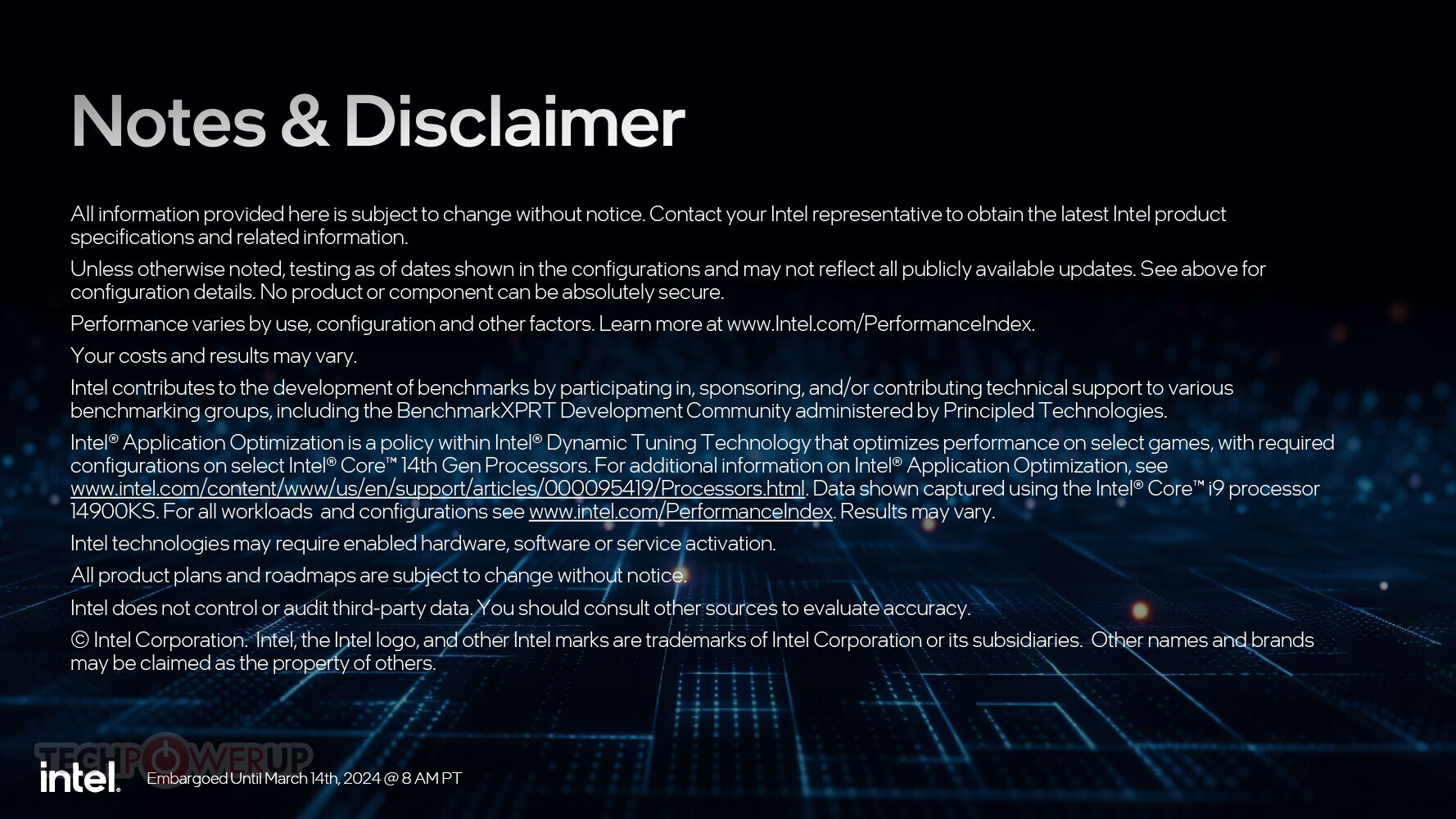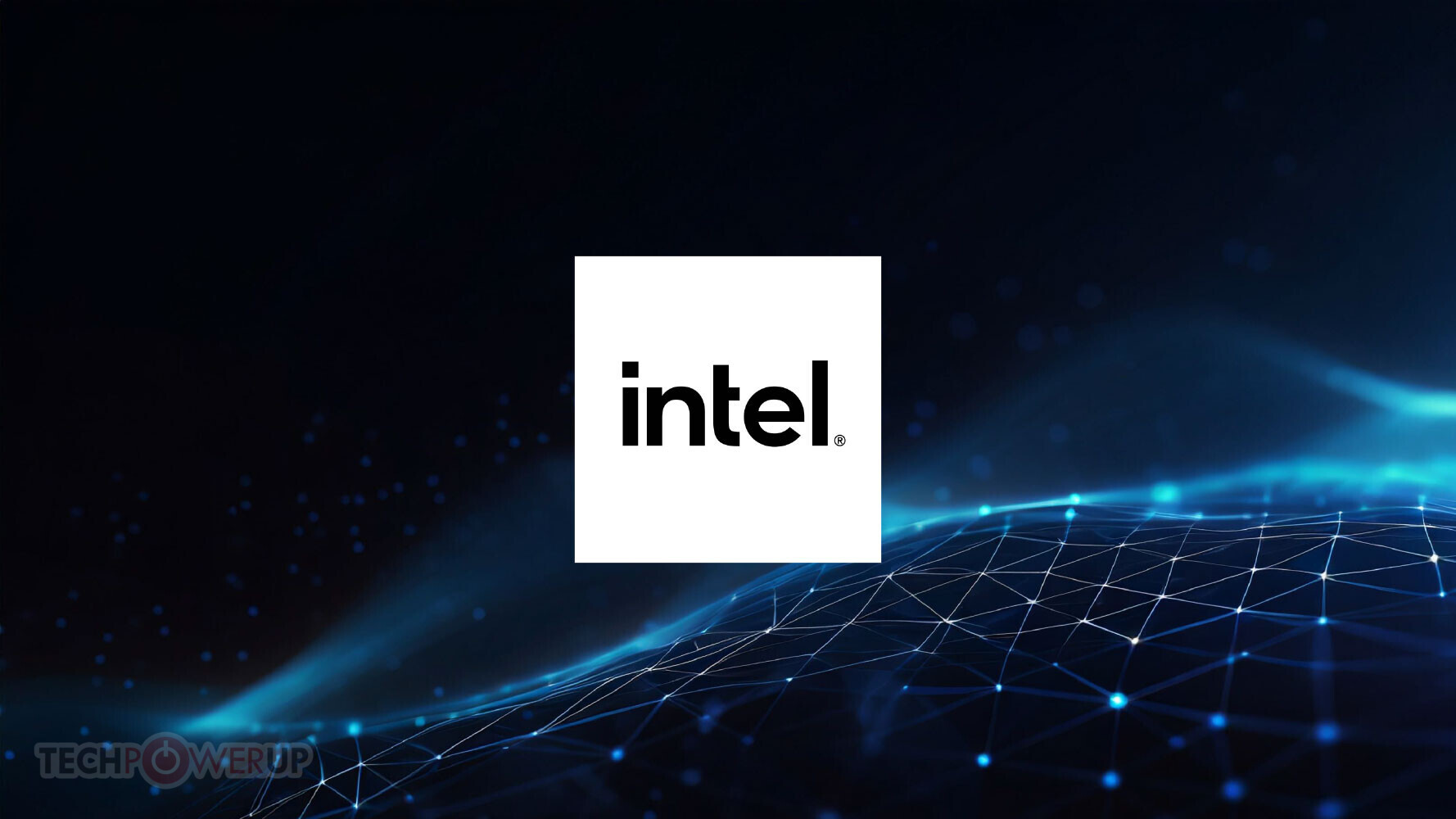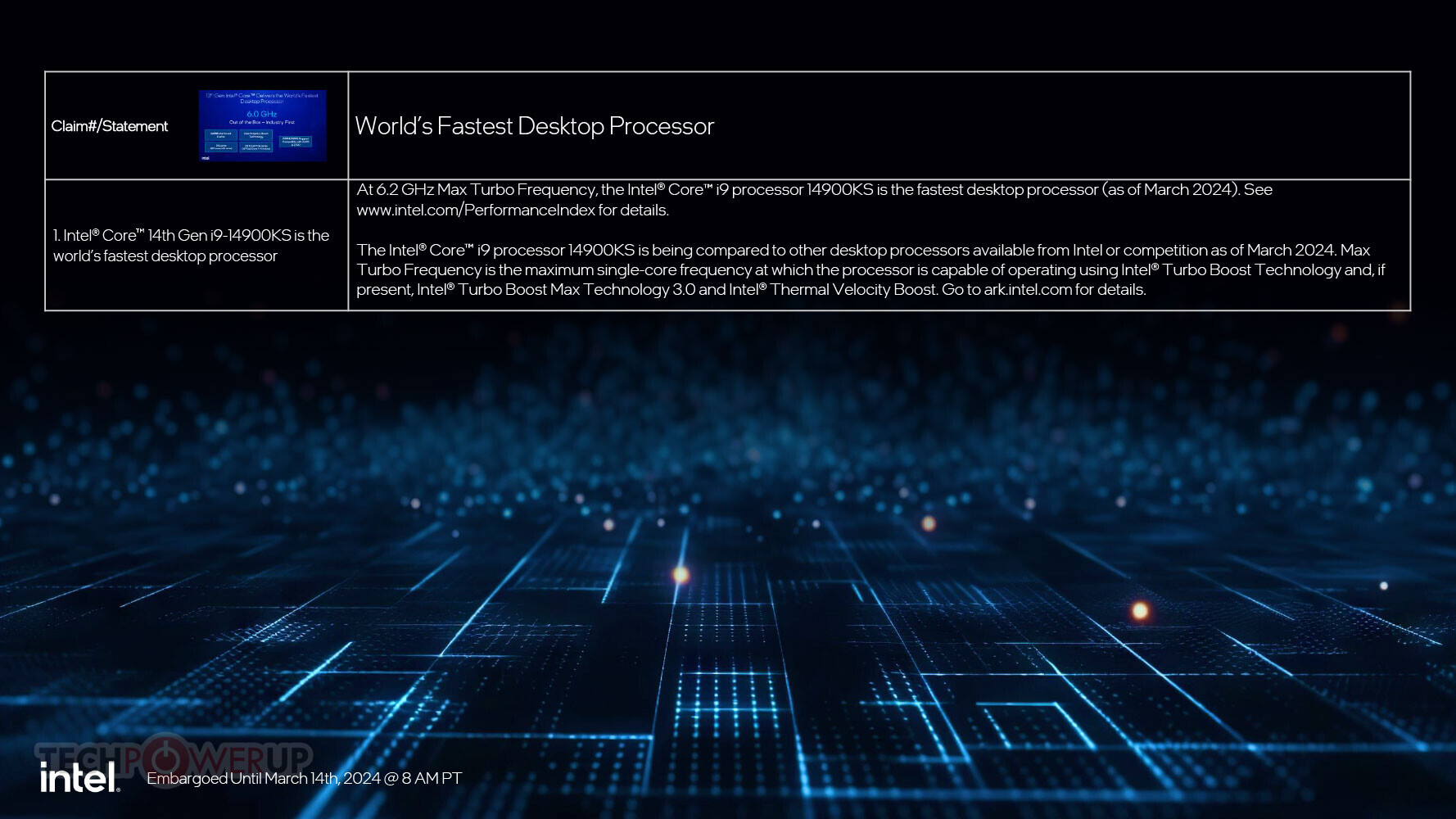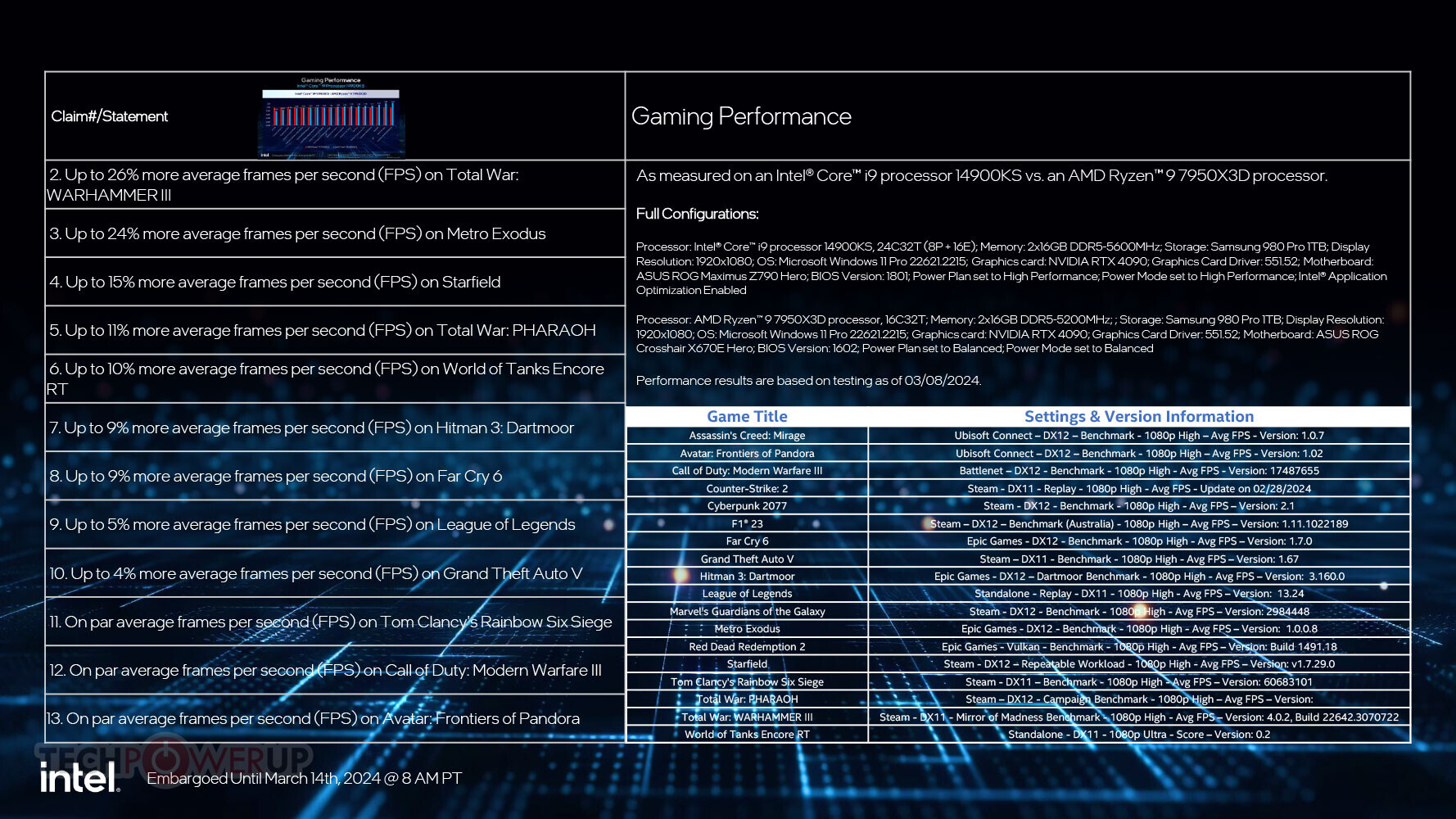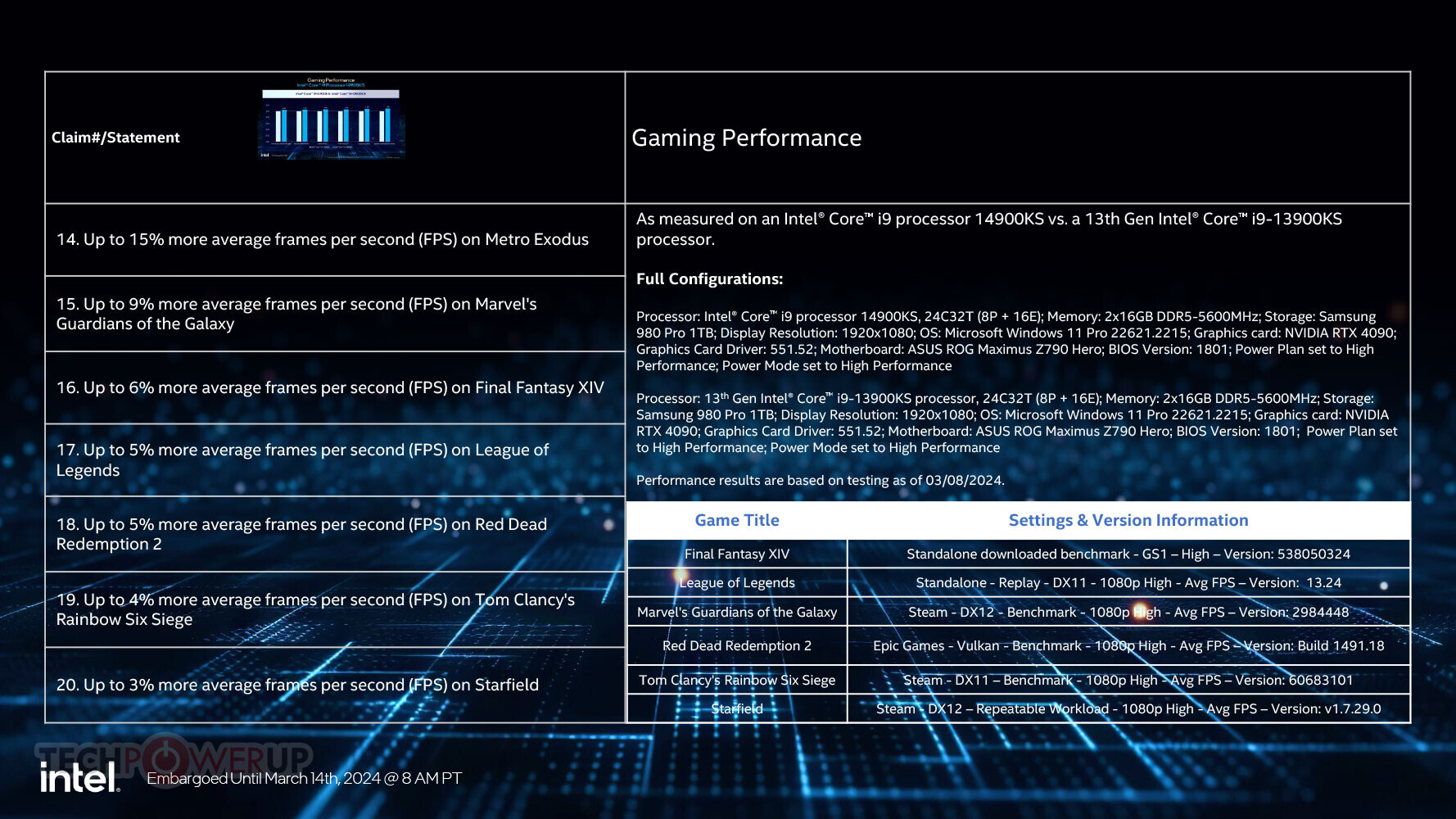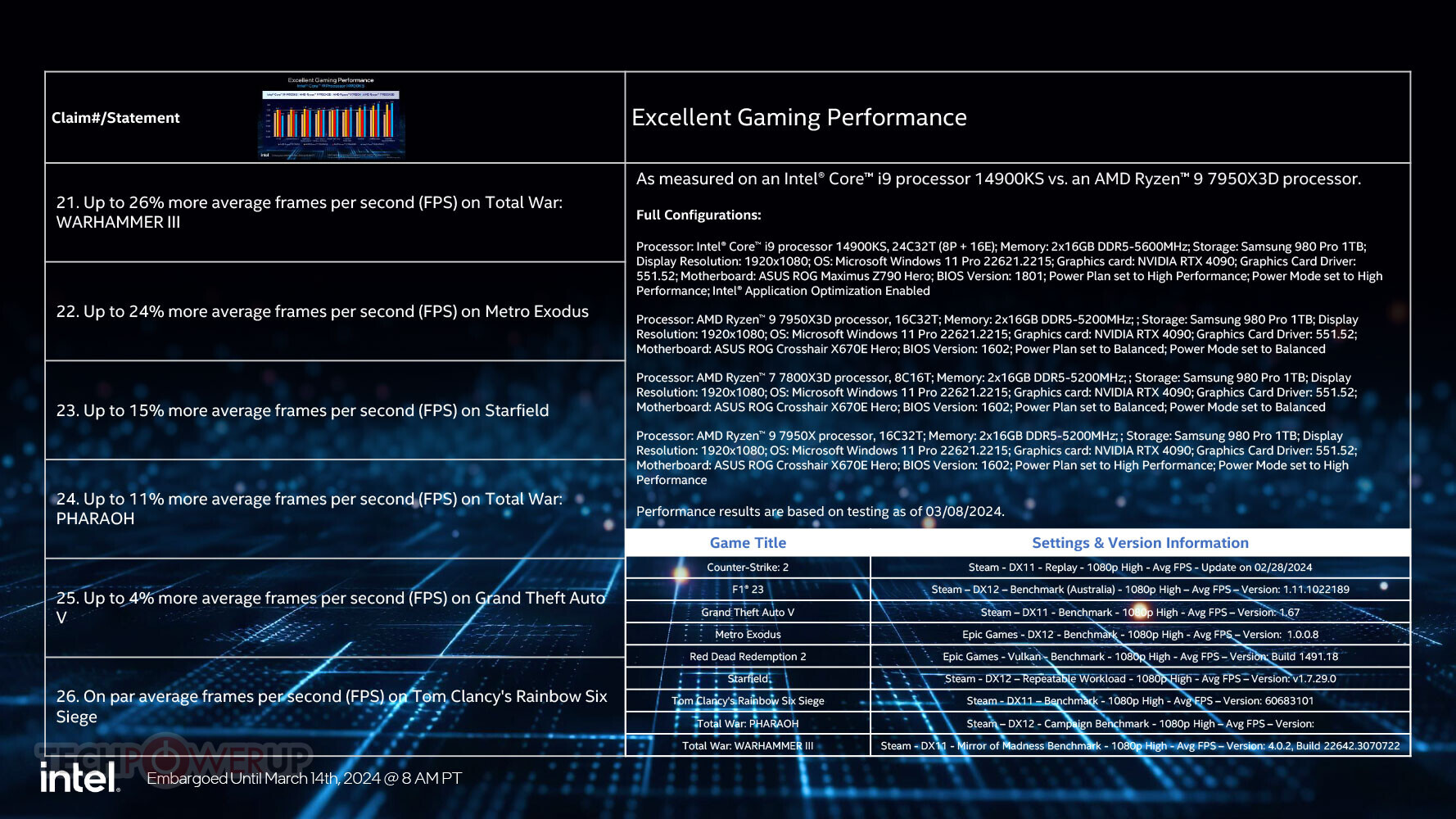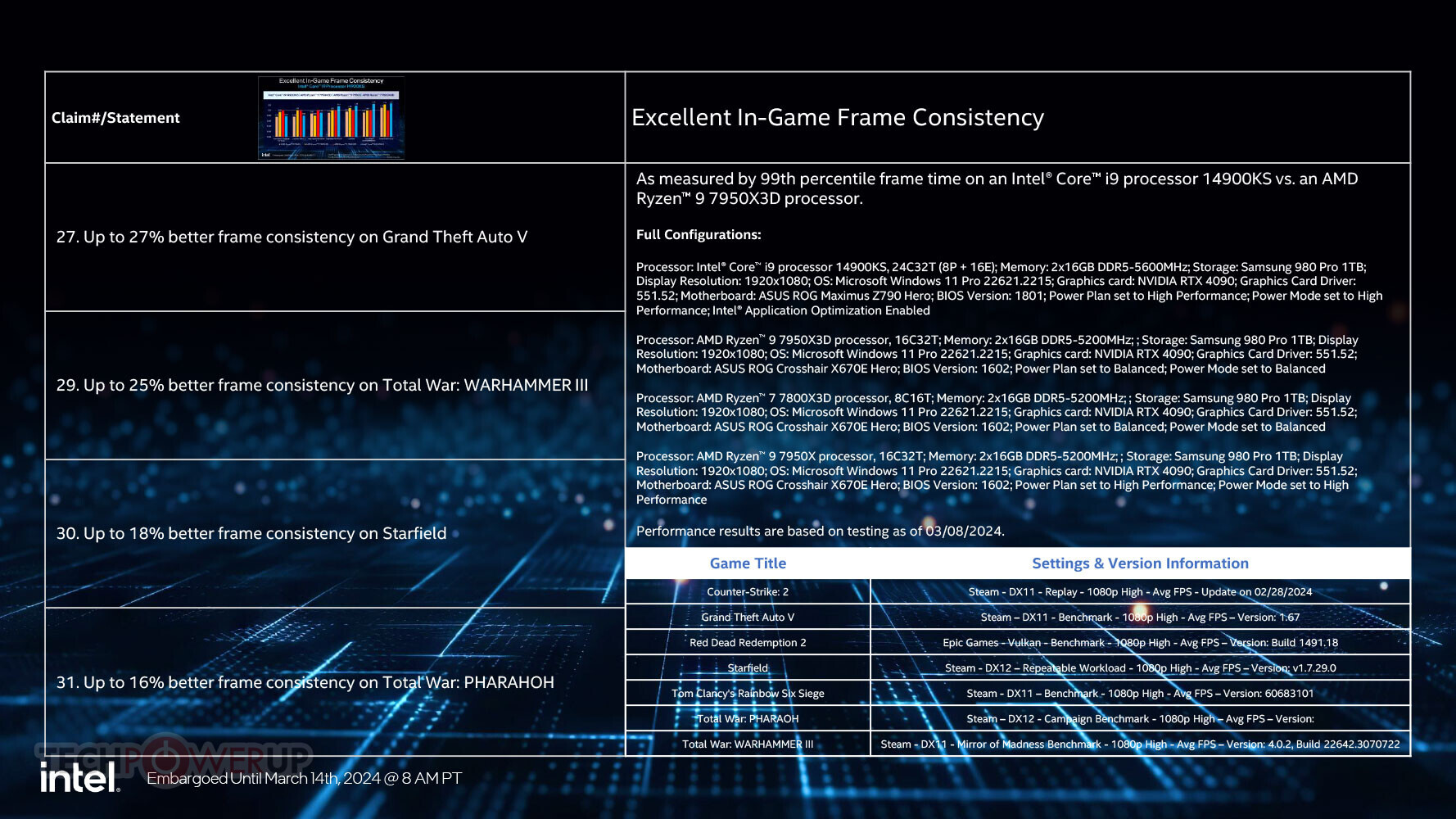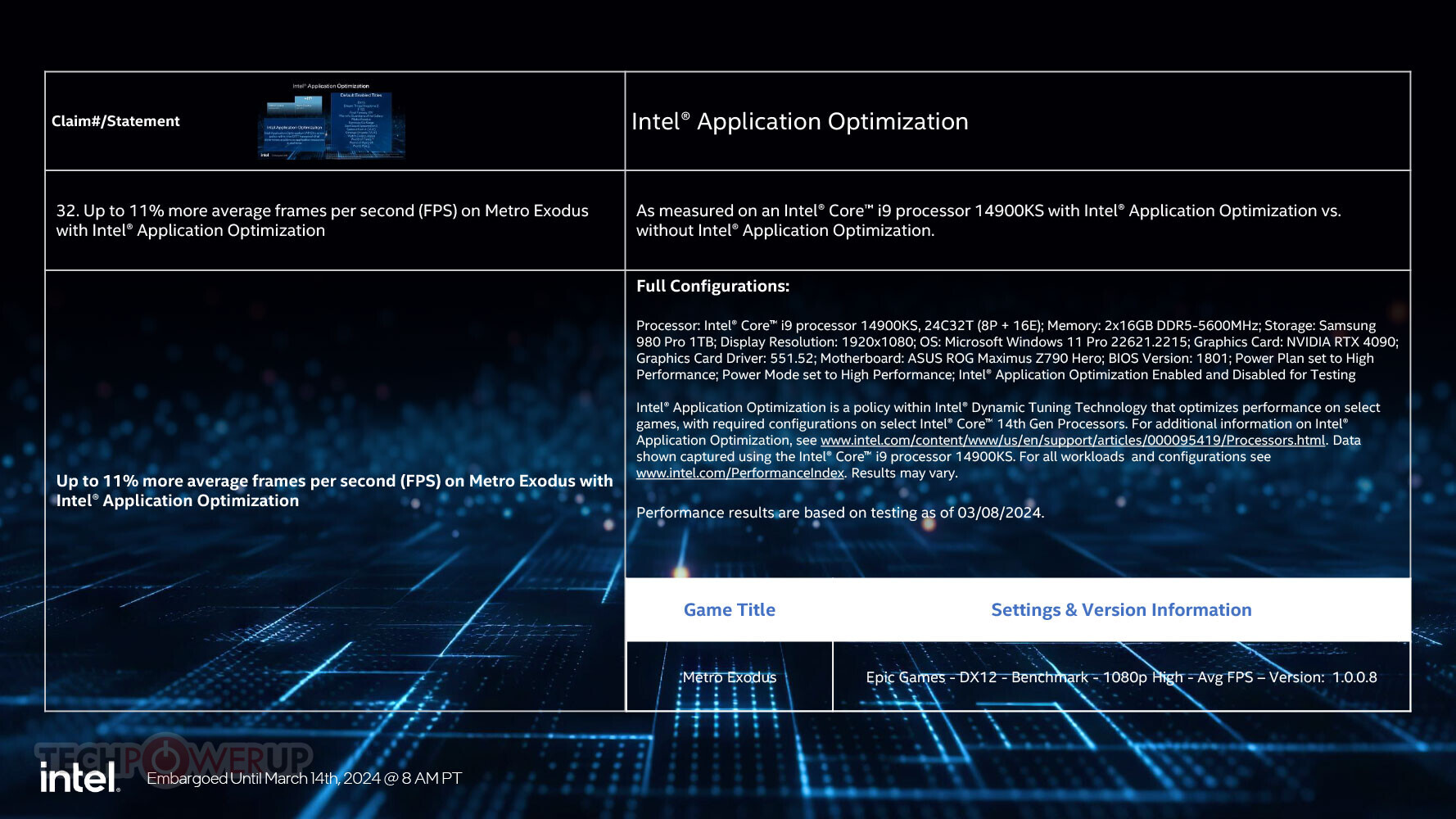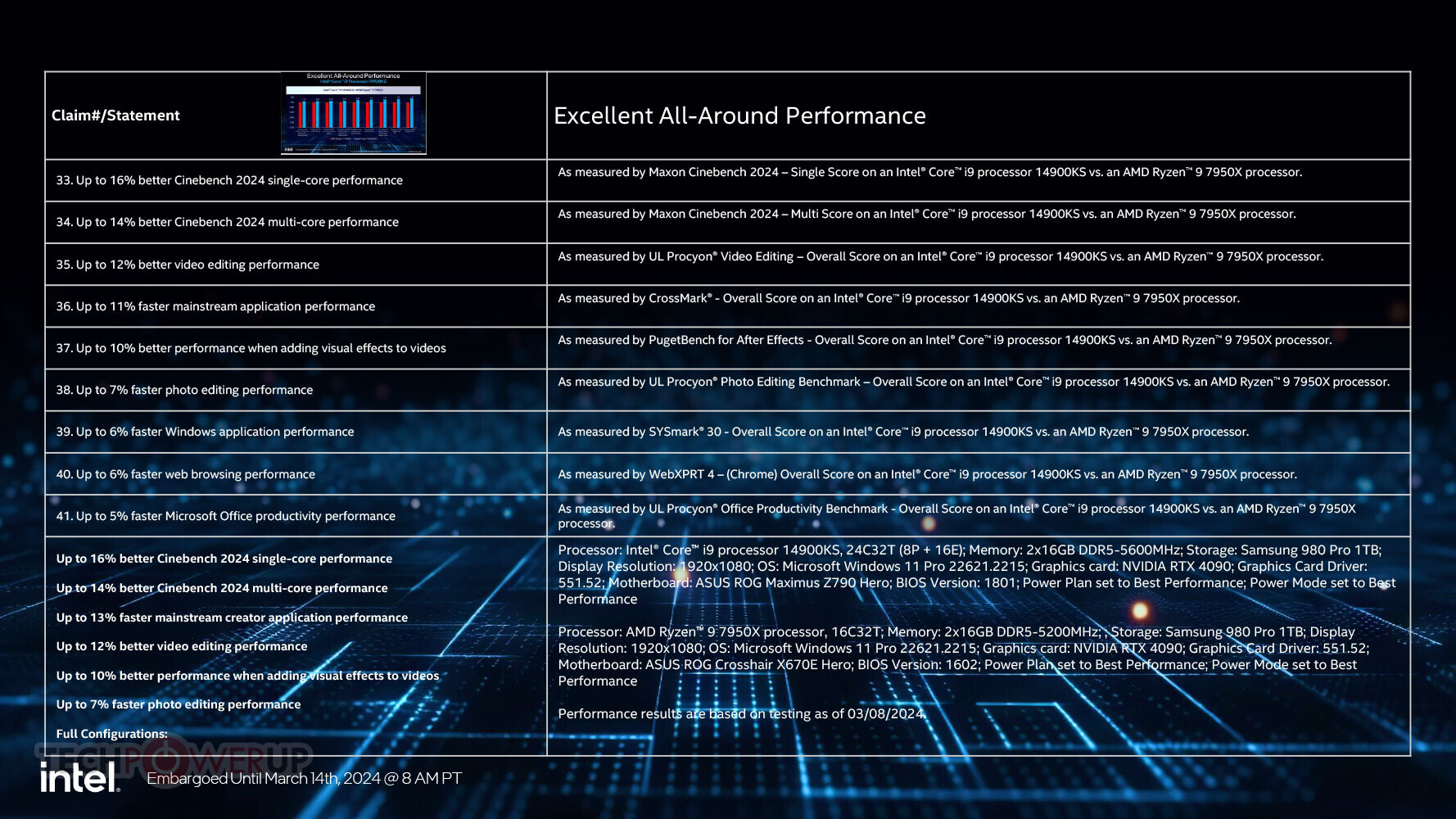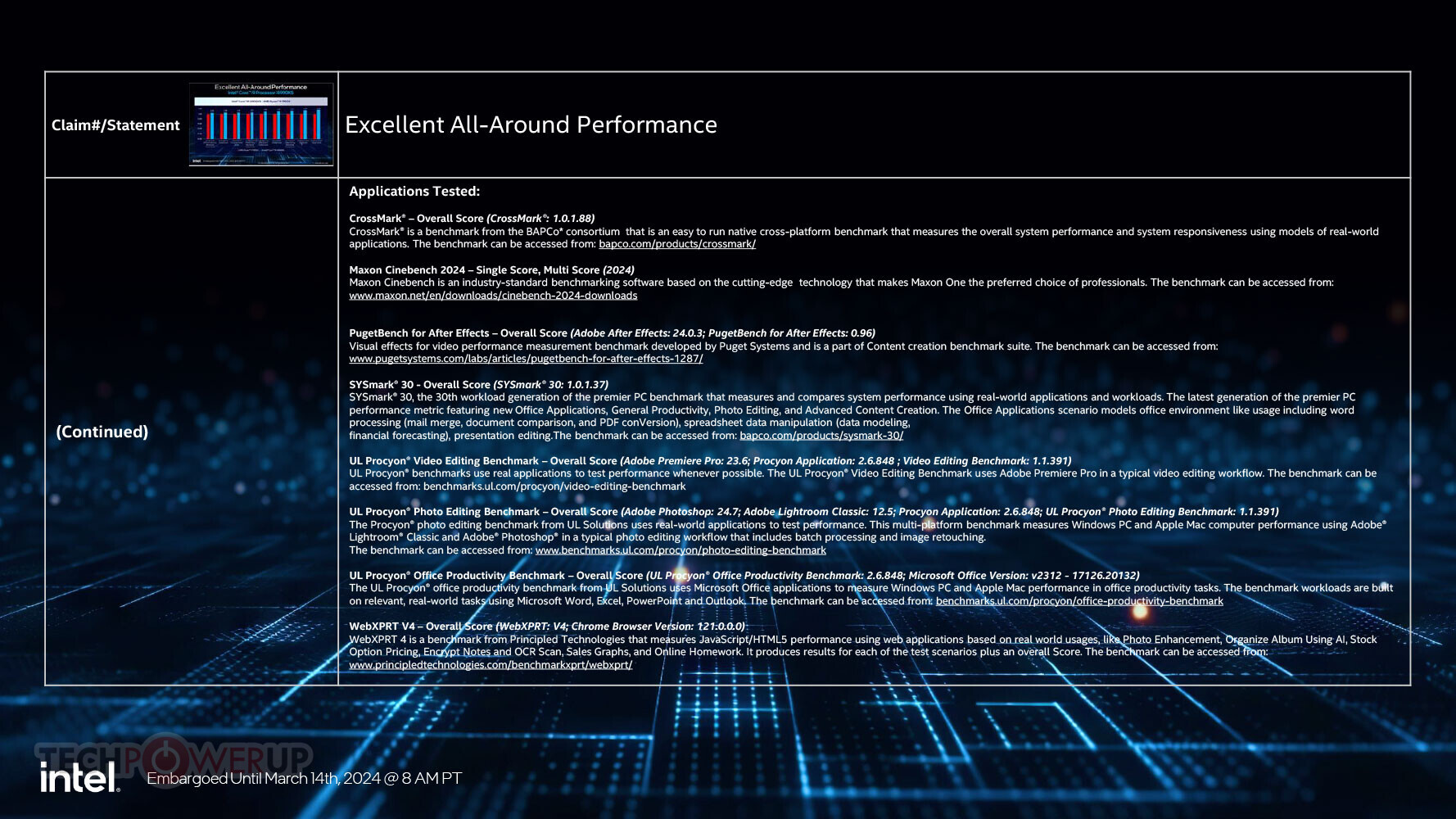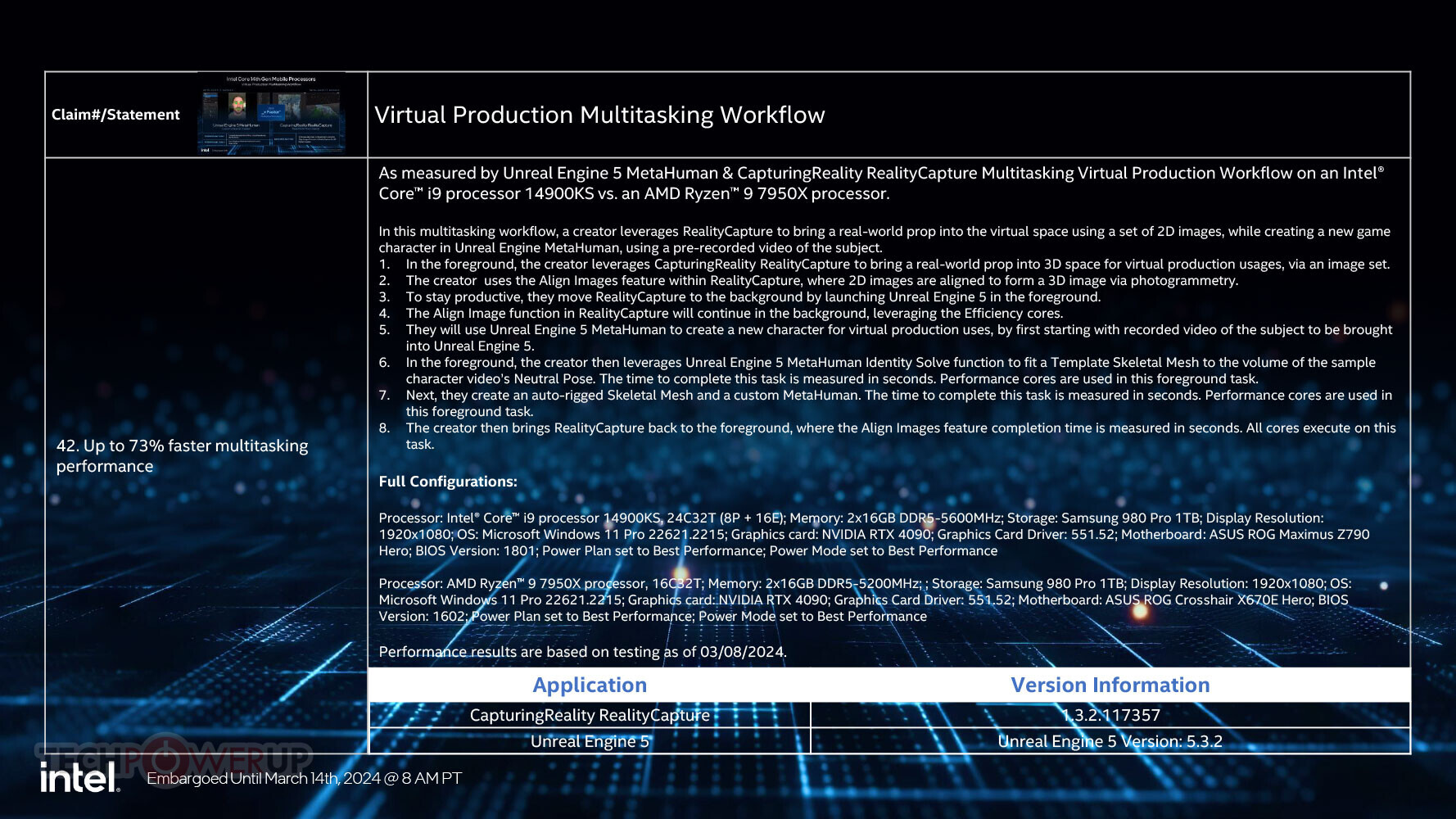Intel Launches Core i9-14900KS Special Edition Processor
Intel has introduced the Core i9-14900KS Special Edition desktop processor, which now serves as the company's flagship product in the desktop segment. This new processor is based on the same "Raptor Lake Refresh" silicon as the i9-14900K, featuring an 8P+16E core configuration. The major update with the i9-14900KS is the increased clock speeds for both the P-cores and E-cores. The P-cores now boost up to 6.20 GHz, a 200 MHz increase over the i9-14900K, while the E-cores boost up to 4.50 GHz, a 100 MHz increase.
What sets the i9-14900KS apart is the 320 W Extreme Power Delivery Profile, a feature not found in the regular i9-14900K. This allows the processor to draw large amounts of power on select Intel Z790 and Z690 motherboards with two 8-pin EPS power connectors to maintain high boost frequencies. Additionally, the i9-14900KS is made from the highest bins of the "Raptor Lake Refresh" silicon.
The Core i9-14900KS has a base frequency of 3.20 GHz for the P-cores, with each of the 8 "Raptor Cove" P-cores having 2 MB of dedicated L2 cache. The 16 "Gracemont" E-cores are organized into four E-core clusters, with each cluster sharing a 4 MB L2 cache among its four cores. The processor also features a 36 MB L3 cache shared between the 8 P-cores and 4 E-core clusters. The base power value of the i9-14900KS is 150 W, higher than the i9-14900K's 125 W. The maximum turbo power remains at 253 W, engaged on platforms capable of Intel Performance Power Delivery Profile, with the 320 W Extreme Power Delivery Profile available on select premium motherboards.
The Core i9-14900KS is a Special Edition SKU and may not be available in all markets where the i9-14900K is sold. Intel has priced this chip at $690, a $100 premium over the i9-14900K, but $50 cheaper than its predecessor, the i9-13900KS.
For more information, you can read the TechPowerUp Review of the Core i9-14900KS. Below are the launch press-deck by Intel and its first-party performance claims.
